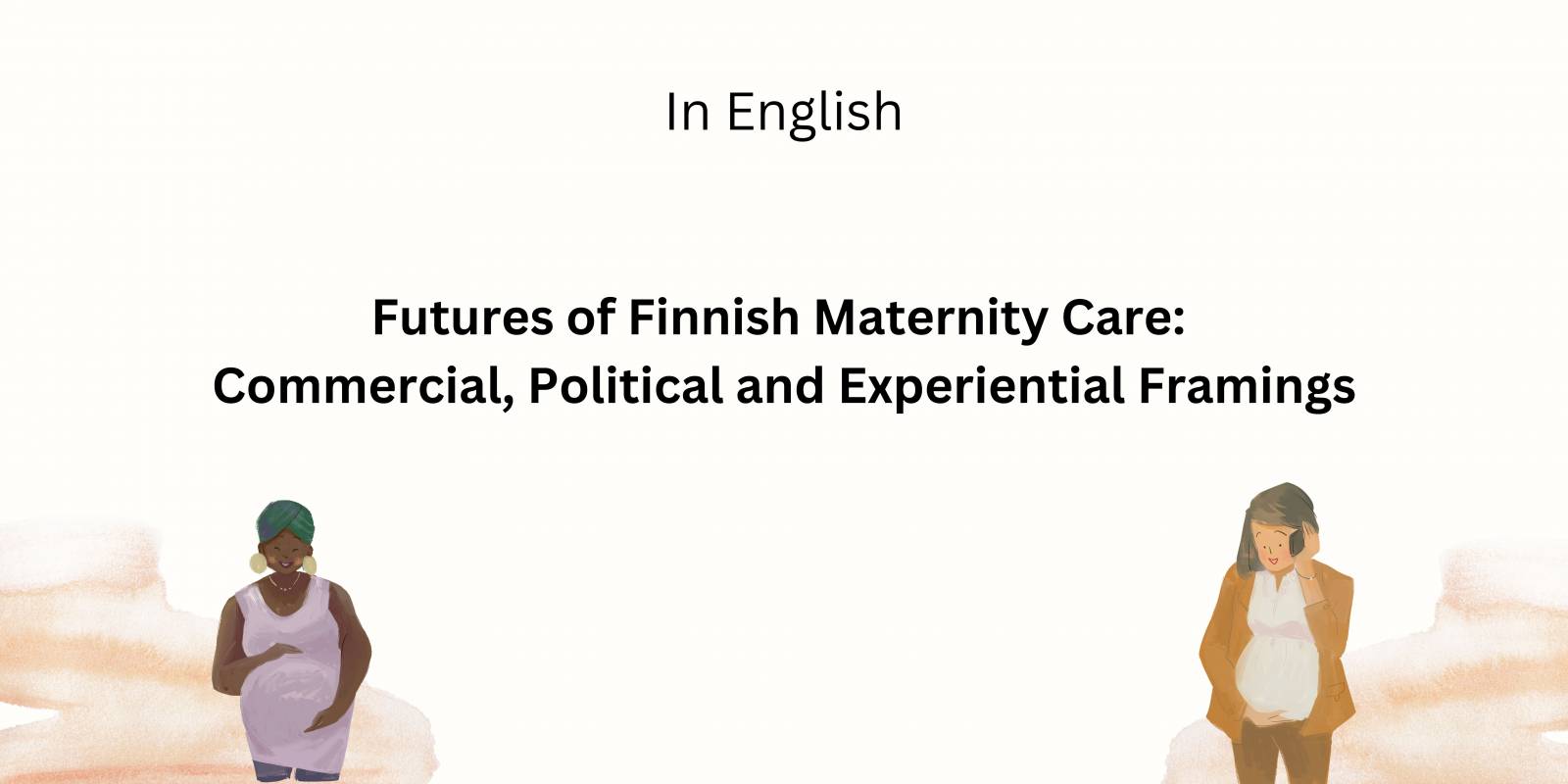Maternity services are considered a source of pride in Finland. They comprise of community-
based clinics, run by multiple public health nurses and one or two general physicians. Expectant
mothers attend these tax-funded clinics throughout their pregnancy.
However, maternity services are undergoing changes. The ongoing health and social services reform transfers organisational responsibility from municipalities to newly established counties. Decision
makers need to determine who should produce maternity care and how to ensure the quality of
care in demographically and geographically varied regions. Concurrently, private healthcare
providers are diversifying their range of services to cover maternity care and expectant parents
are placing varied expectation on care. This project will delve deeper into these developments
by looking at maternity services through three interconnected frames.
The commercial frame draws attention to the commodified aspects of pregnancy and care.
Services such as check-ups, screening and home visits are provided by large private companies
and small clinics operated by nurses and midwives. Additionally, doulas and free birth
consultants offer adjacent services. Expectant parents are seeking personalised services
offering flexibility and partnership. Private services are also promoted through maternity and
parenting blogs. Hence, the starting of point of this study is to enquire: What kinds of
developments are fuelling the maternity service market in a country that offers free maternity
care and what kinds of services are currently offered?
The choices parents make regarding maternity care may have consequences on the Finnish
universal welfare system. People who purchase private services may feel less willing to
continue funding public services through taxation, as people need to have positive contacts
with the system in order to want to keep public services robust. This prompts the project to
explore maternity care through a political frame by asking: Will parents’ choice to use private
maternity care erode the legitimacy and trust in public maternity services? Consequently, what
is left for families unable to buy additional services?
It is also important to consider the contesting ideas related to pregnancy and birth, which are
reflected in the current prenatal service market. Doulas, free birth services and midwife led
businesses use the rhetoric on natural birth, female empowerment and personalised care, with
some contesting the idea of hospital as the safest place to give birth. They often align
themselves with the birth consumer movement that highlights women’s ability to make
decisions and the natural birth movement that stresses women’s natural capacity for birth. Larger private companies often promote a medicalised approach, offering more medical
interventions and tests to expectant parents seeking to manage anxieties and risks.
Currently, expectant parents may choose to use private services, public services or a
combination of the two. Their choices can reflect their conceptions of pregnancy, birth, as well
as good and responsible parenting. Their choices may also stem from experiences of being
ignored or dismissed, such as those highlighted through the recent and controversial obstetric
violence campaign. Hence, I will also look at maternity care through an experiential frame
and ask: What are expectant parents seeking from care providers? How do they describe good
maternity care? How are public services responding to needs and expectations of expectant
parents?
The project aims to:
1) Map out the range of private maternity care providers and analyse how and to whom
services are marketed.
2) Analyse expectant parents’ rationales for choosing maternity care services and the
socio-cultural environment where these choices are made.
3) Explore parents’ perceptions of maternity services, their conceptualisations of good
care and the responses of public services to the needs and expectations of parents.
4) Study the political consequences of ‘going private’ in terms of the future of maternity
care and people’s shifting relationship with the welfare system.
Timetable
The project began in Sep 2022 and most of the materials will be collected during 2023-2024. Results
will be published 2024-2026.
Funding
1.9.2022-31.8.2024 I am working at the Tampere Institute for Advanced Studies and the project is funded by the University.
1.9.2024-28.2.2025 the project is funded by Jenny and Antti Wihuri Foundation.
Contact
Postdoctoral Research Fellow Marjaana Jones
Tampere Institute for Advanced Study & Faculty of Social Sciences (Health Sciences), Tampere University
marjaana.jones@tuni.fi


